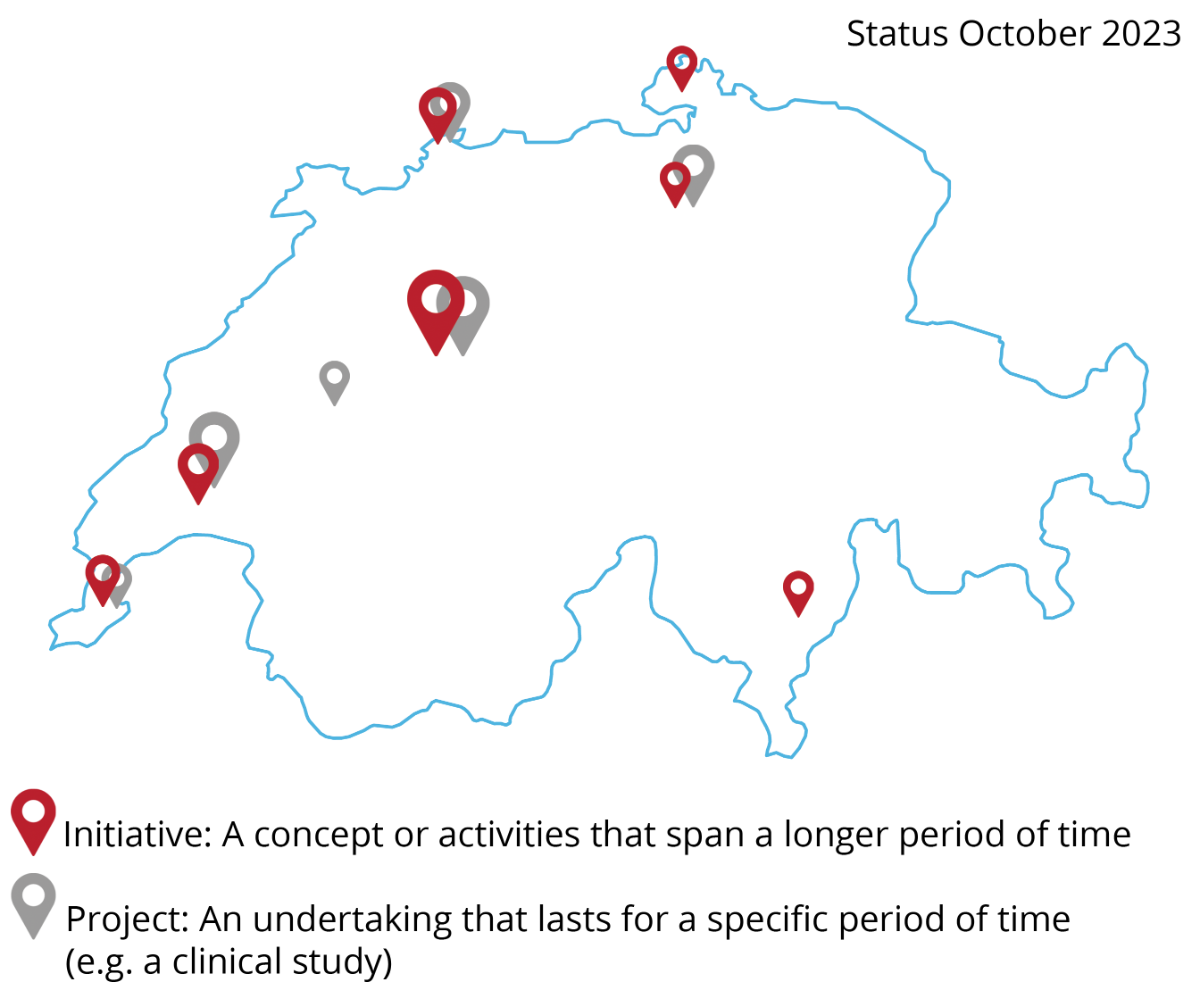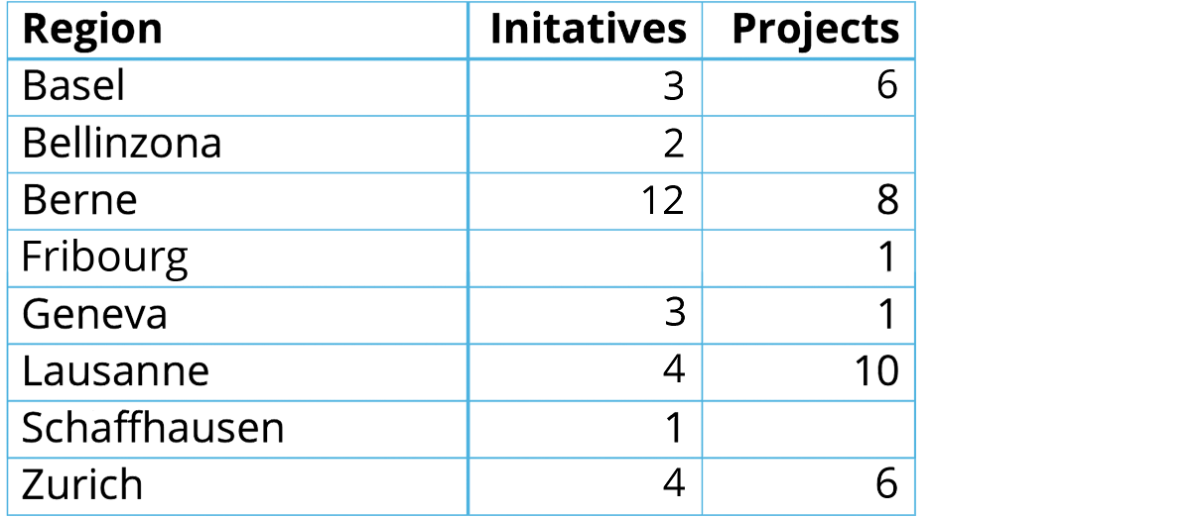Local and national PPI initiatives and projects in academic clinical research
The basis for this PPI mapping exercise is an online survey conducted by the SCTO and a multistakeholder working group consisting of representatives from patient organisations and academic clinical research. This project was carried out with the help and financial support of the Swiss Personalized Health Network (SPHN), which is one of our partner organisations.
Our PPI mapping exercise revealed that numerous patient and public involvement (PPI) activities exist in academic clinical research in Switzerland. Individual initiatives and projects, including the type of involvement, are summarised below on this page.
The over 50 PPI initiatives and projects in the field of academic clinical research included in the mapping exercise are initiatives and projects that are governed by the Human Research Act (HRA) and its ordinances and that are funded by non-profit organisations (usually foundations) or receive public funding (e.g. university hospitals). The mapping data do not include PPI initiatives and projects that have a general focus on the healthcare system but no direct connection to clinical research. The following types of research, among others, are included:
- randomised controlled clinical trials
- research on personalised health
- observational research in epidemiology
- research with data and samples from humans
- research on research















